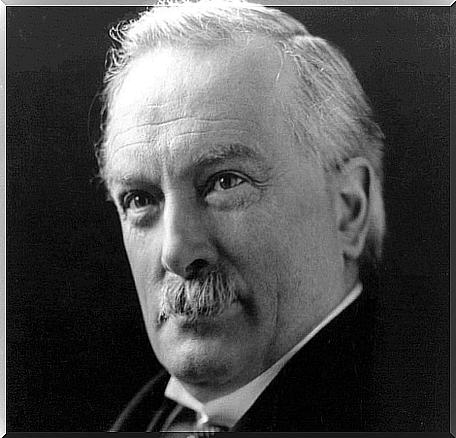Hybris Syndrome: When Power Corrupts

People who suffer from hubris syndrome change their personality when they are in a leadership position. It can happen in the business world, politics or any other field where hierarchies exist.
In fact, people with hubris syndrome show extreme pride, excessive self-confidence, and total contempt for others. These traits lead to impulsive and often destructive behaviors.
There is no evidence to suggest a scientific explanation for hubris syndrome. In other words , the brain of a person with hubris syndrome does not show any physiological changes.
Hybris syndrome is not a disorder in itself, nor is it a subtype of narcissistic personality disorder. Instead, it manifests itself in positions of extreme power, and it does not develop in the same way that a personality disorder does.

Hybris syndrome and power
The term hybris (ὕβρις, hýbris) is a Greek concept meaning “excessive”. It is the opposite of seriousness and moderation. The Greeks described a hybrid person as an overly proud person and one who treated others disrespectfully and rudely. Therefore, the person enjoys using his power that way.
David Owen, a minister for James Callaghan’s Labor Party, and psychiatrist Jonathan Davidson have studied hybris syndrome. Owen argues that people often consider hybris syndrome to be a natural (or at least a kind of expected) extension of the self-confidence and ambition that anyone who wants power has to have.
While many believe that arrogance is often an unfortunate trait in leaders, they also believe that some degree of arrogance is simply the price one has to pay for good leadership.
Power is a strong substance, and not all leaders have a strong enough character to oppose it. Doing this requires a combination of common sense, humor, decency and skepticism.
Cynicism is also important because it helps you see power as it is: a privileged opportunity to influence and often determine the outcome of the situations that happen around you.
More specifically, Owen described hybris syndrome as a unique and acquired personality disorder that only develops after a leader has been in power for a certain period of time. It is also important to note that this is only valid when there is no history of psychiatric disorders.
Symptoms of hubris syndrome
Here is a selection of David Owen’s list of 14 symptoms of hubris syndrome:
- The use of force for self-glorification.
- An almost obsessed focus on personal reputation.
- Excessive self-confidence, accompanied by contempt for advice and criticism from others.
- Lack of contact with reality.
- Speaks like a messiah.
- Uninhibited and impulsive actions.
- Hybrid incompetence, where sovereign self-confidence leads to a lack of attention to detail.
When Owen and Davidsom examined these symptoms, they noted that they often overlapped with other personality disorders, particularly narcissistic personality disorder.
7 out of the 14 symptoms are also symptoms of narcissistic personality disorder. Furthermore, hubris syndrome shares 2 symptoms with antisocial personality disorder and theatrical personality disorder.
Famous cases
Owen and Davidsom analyzed the psychological profile of British prime ministers and presidents of the United States from the last 100 years to find examples of hybrid traits.
They found that 7 presidents of the United States showed clear signs of arrogance. The 2 Roosevelts, Woodrow Wilson, John F. Kennedy, Lyndon B. Johnson, Richard Nixon and George W. Bush. However, the only president they thought had this syndrome was George W. Bush.
Among the Prime Ministers of the United Kingdom, Owen and Davidson felt that Herbert Asquith, David Lloyd George, Neville Chamberlain, Winston Churchill, Anthony Eden, Margaret Thatcher and Tony Blair displayed excessive pride and arrogance.
For them, however, only David Lloyd George, Neville Chamberlain, Margaret Thatcher and Tony Blair could tick all the boxes for hybris syndrome.

It is not only politicians who suffer from it
Prime Ministers and Presidents were easy to study, due to the extensive biographical information available about them. Hybris syndrome, however, does not exclusively affect politicians. In fact, it’s about power. Therefore , anyone in a position of power, such as a CEO of a large company, may also suffer from this syndrome.
The great Bertrand Russell wrote about this phenomenon about what happened to the mental stability of an individual when he is in a position of power. He described the causal link between power and atypical behavior. He called it the “intoxication of power.”
This leads to the idea that honorable, moral people can become corrupt after years of accumulated power. This is why it is so important for members of developed societies that they keep these people under control of systems that limit the power that a person can possess.








